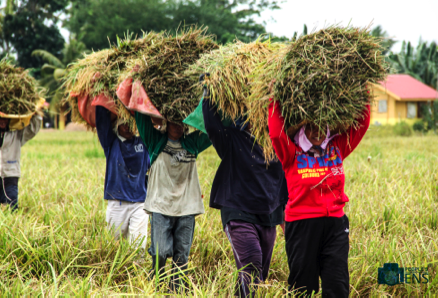
IBON Executive Editor Rosario Bella Guzman said that non-quota tariff rice importation undermines the food security principles of supply stability and affordability. She said that in face of world market volatility, a fluctuating peso-dollar exchange rate and impending El Nino, government should seek to stabilize prices and the economy.
Government will soon release the implementing rules and regulations of the new Rice Tariffication Law, which it expects to bolster local rice supply and produce revenues to enhance the rice industry.
Guzman said that rice tariffication will affect local rice farmers who will not be able to compete with cheap subsidized imports. “Government says it will cull Php10 billion a year from tariff revenues to support the local rice industry. But that’s only US$190 million versus Vietnam’s US$1 billion and Thailand’s US$7 billion in annual subsidies to their rice farmers,” said Guzman.
She also noted that the small Php170 billion agriculture budget, that is just 4% of the national budget, shows low prioritization of the sector. “Government is pushing us to just rely on imports,” she said.
Guzman also stressed that while rice tariffication will make more rice available in the local market, stable supply is in question because only 10% or less of the world’s total rice production is sold by rice-producing countries to other nations. Also, she pointed out, the government of Thailand has decided not to export rice to prioritize its own population this year.
Rice may become increasingly unaffordable amid stagnant wages, Guzman added. Local retail rice prices may jump from the Php27 per kilo to Php44 per kilo given a landed cost of Php37. With government phasing NFA’s rice price control functions out yet unable to stop cartels, rice prices are bound to hike further. Heavy importation amid a weak peso-dollar exchange rate is also a factor In higher prices, Guzman explained.
“While we cannot say if the forthcoming El Nino will be worse than the 2014-2016 drought, we are already in a grave agricultural crisis as it is,” Guzman further said. Agriculture grew by only 0.8%, while palay production fell by 1.1%. She said that this is not even due to the weather but to government policies that allow production to be hit and importation to be monopolized.
“We don’t need a worsening crisis in agriculture. Government needs to stabilize the entire economy to be able to eventually stabilize prices,” Guzman said. This includes adopting policies that will strengthen and regulate the local rice industry to ensure Philippine food security such as distributive land reform, substantial farm subsidies and strict government control of the market, said Guzman.